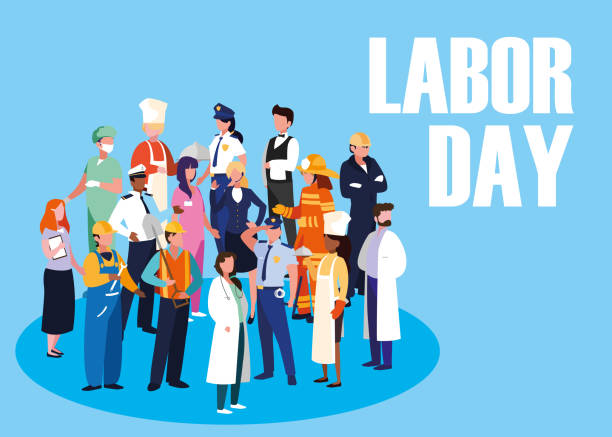Earlier this week, US President Joe Biden unveiled a plan to promote worker organizing: a notable effort in a country where union membership tumbled to 10.8% of the workforce by 2020 from 20.1% as recently as 1983.

The move came at an appropriate time, just a few days ahead of what will be observed around the world as International Workers’ Day.
Around the world, that is, but not in the US – which long ago slotted its Labor Day in September and sought during the Cold War to re-brand May Day, deemed to have communist overtones, as “Law Day.” Still, the White House union initiative, designed to foster a more inclusive middle class, marks a move in the direction of strengthening workers’ rights.
International Workers’ Day originated in the 19th century as a way to honour efforts to win an eight-hour workday, at a time when factory labourers in industrializing countries would regularly clock 70 hours or more per week, and conditions were frequently abysmal. Since then, Germany has cut its annual working hours by an estimated 60%, while the UK has seen a roughly 40% reduction.
In addition, in many countries child labour has diminished (children were once prized by factory owners in the US for being cheaper and less likely to strike), and the circumstances for workers in general have vastly improved.
In Sweden, parents can now share 480 days of paid parental leave, while in Austria, at least one out of every 25 jobs must be filled by disabled workers, and Germany plans to increase its national minimum wage to €10.45 ($12.65) per hour by next year. In Denmark, employers aren’t legally allowed to prevent employees from joining a union.
The ratio of workers in Europe who are union members tends to be higher in Scandinavian countries, and lower in central and eastern states where unions may have been mostly used for political purposes before the fall of the Berlin Wall – an era when 1 May celebrations were often compulsory.
There are questions about traditional union models and whether they make sense for modern “knowledge workers.” Increasingly prevalent gig work can undermine collective bargaining, and some have suggested the eight-hour-day fought for long ago may no longer even be relevant. Frequently, workers have been aggressively deterred from making any initial progress on unionizing at all.
A high-profile union drive at an Amazon warehouse recently ended with employees voting against the effort, and the company’s founder Jeff Bezos subsequently vowed to “do a better job” for its workers.
In China, where a “long-hours culture” has spread from factory workers to white-collar employees, some have started to publicly propose that the idea of an eight-hour workday might still be relevant in the 21st century, after all.
In many developing countries, there is much work yet to be done when it comes to ensuring not just humane working hours, but better conditions in general. Later this month, the Bangladesh accord on fire and building safety – a pact binding hundreds of companies in the wake of the horrific collapse of a garment factory in Dhaka that killed at least 1,132 people – is scheduled to expire.
Read Also: Imo State Government Reiterates Its Commitment To Pensions Payment
The staggering size of the informal economy, where workers take on some of the most hazardous jobs without protections or guarantees, has hindered efforts to improve safety. Then, there’s COVID-19; the pandemic has decimated job opportunities in many places – leaving people who might otherwise be overworked or exposed to dangerous conditions struggling to find any work at all.
Post-pandemic, experts say a few things could help the workforce recover: more training and skills development, focusing that training on specific occupations, and doing more to support private-sector unions.
Follow us on Facebook
Post Disclaimer
The opinions, beliefs and viewpoints expressed by the author and forum participants on this website do not necessarily reflect the opinions, beliefs and viewpoints of Anaedo Online or official policies of the Anaedo Online.


